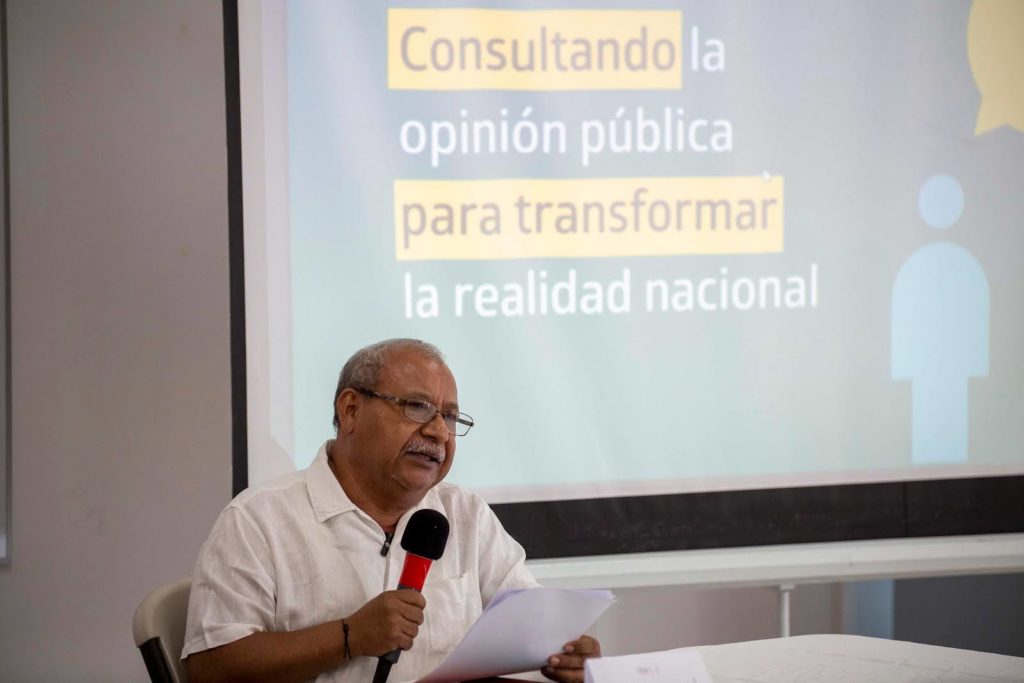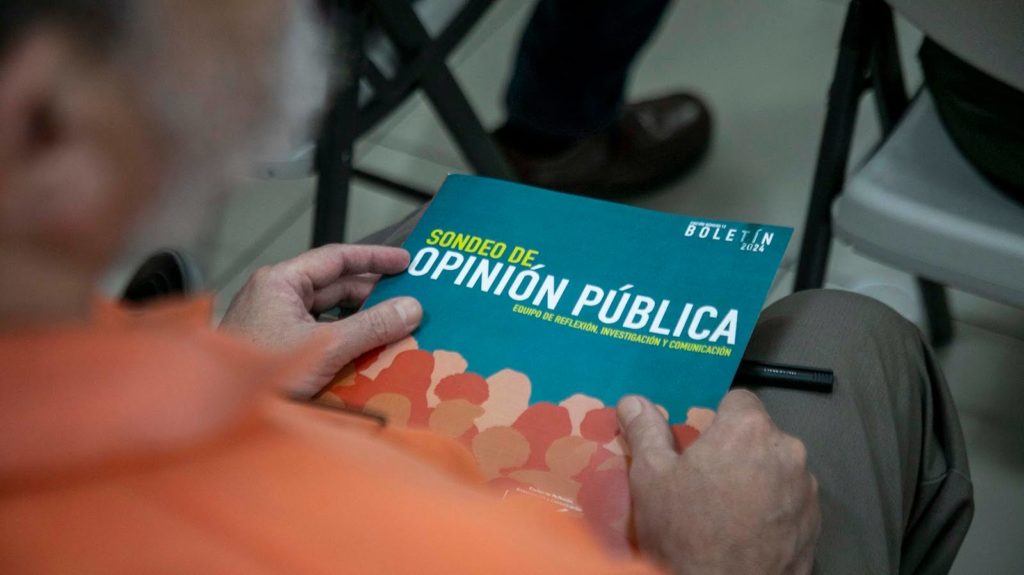A recent poll by Equipo de Reflexión, Investigación y Comunicación (ERIC-SJ) found that the Honduran population profoundly distrusts public institutions and believes the drug trade remains deeply entrenched in them. However, Hondurans don’t perceive this as the country’s main problem, and 21 percent of the population say former President Juan Orlando Hernández, who was convicted of drug trafficking in the U.S. less than three months ago, did not cause any harm to the country.
Text: Célia Pousset
María Celeste Maradiaga and Jennifer Ávila contributed to this report
Photography: Fernando Destephen
“It’s interesting that drug trafficking is not considered the main problem in this country, even though Juan Orlando Hernández was convicted this year, and the population regards him as a drug trafficker,” said Ismael Moreno, Jesuit priest and member of ERIC-SJ, as he interpreted the results of the latest poll.
It’s been almost three months since the former president’s conviction for drug trafficking, and the poll sheds light on a great paradox of Honduran society: although drug trafficking is considered to have a “strong presence” in public institutions (per the 48 percent of the 1,522 respondents), only 1 percent of Hondurans think it’s the most significant problem the country is facing.
Hondurans are more concerned about unemployment, the economic crisis, crime and insecurity – mostly “in relation to gangs and not the drug trade,” says Elvin Hernández from ERIC-SJ, explaining the discrepancy in the poll. “Gangs are considered the main problem, not the drug trade because this is how many communities make a living in the country,” he adds.
Moreno stressed the low level of schooling, the population’s trust in churches and the institutional weakness around the country. “People are anxious about meeting their most pressing needs: employment, paying the bills and citizen security. Those are their most important concerns; whoever solves them and by whatever means is not that important. It could be a millennial pastor, a drug trafficker, a populist or a democrat. This shows low levels of schooling and conscientiousness that inhibit their ability to politically identify what’s best for them as individuals and as a society,” he explained.

In addition, the population highly distrusts actors they believe are responsible for the influence of the drug trade on public institutions. For example, 17.5 percent of respondents say congressional representatives bear that responsibility, 70 percent have little to no trust in Congress, and 84 percent don’t trust political parties.
These data reveal Hondurans’ disappointment with institutions. In late February and early March, beyond putting Juan Orlando Hernández on trial, it was a trial against the State – namely congressional representatives, mayors, businessmen, the police and military for utilizing public funds to their own benefit and profiting from cocaine trafficking to the U.S.
Recommended reading: Who are the Copán politicians mentioned by Ardón Soriano in the trial against the former president of Honduras?
Hondurans attribute the perpetuation of drug trafficking within public institutions to the police, military, judges, magistrates, businessmen and prosecutors, according to the poll. Since two security institutions are perceived to be among the most vulnerable to organized crime, it’s no surprise 33 percent of respondents answered “none” to the question: “Which of the State security forces do you trust the most?”
On the other hand, religious and welfare institutions are among the most trusted ones. According to the poll, the evangelical church ranks first, followed by the Secretariat of Education and the Catholic Church. Public schools offer daily meals, and churches are, for the most part, the only place where communities that have been abandoned by the State socialize and find support.
In areas controlled by drug traffickers, drug lords also carry out charitable work to win over the population. This could explain why the poll by ERIC-SJ – which was conducted between February and March of 2024, when Hernández’s trial was taking place – found that 21.4 percent of respondents think the former president didn’t cause any harm to the country.
“Mechanisms of corruption and the presence of organized crime on all levels of power structures were uncovered during the trial against Hernández. It’s a threat the population believes is still present,” said Mercy Ayala, investigator from ERIC-SJ.
Unemployment and the lack of opportunities to get ahead are the population’s top concerns and reasons why almost half of respondents said they have thought about leaving the country or want to do so. Of those respondents, 55.9 percent mentioned unemployment and 29.6 percent mentioned the economic crisis.
These concerns, which have not been addressed by the government, result in the Castro administration’s low approval ratings and a lower score as compared to last year. On a scale of 1 to 10, President Castro had a rating of 4.23 this year and 4.46 in 2023.
The poll, which has been conducted by ERIC-SJ for 13 years and includes 16 of the 18 Honduran departments, shows significant tendencies such as the growing popularity of the evangelical church and the loss of trust in public institutions. Israel Moreno says the results show an anxious, fragile and polarized society in which anti-democratic political projects could take hold as long as they promise to meet the needs of the population.
“The threat of voguish preachers like Milei [president of Argentina] in such a fragile society like Honduras is present,” he warned.







